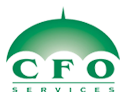Campaigners are calling for an end to sexual harassment and sexual violence on International Women’s Day as 66pc of women said the pandemic had slowed Ireland’s march towards gender equality.
A study released by campaign group Network Ireland found two-thirds of women felt the crisis had held up gender equality progress. Some 73pc who stated progress has stalled also felt a lack of equality is “most visible” in the area of childcare and family life, while 23pc said gender inequality was most apparent within employment. Meanwhile, four out of five said women have been disproportionately affected by the Covid-19 environment.
Of those surveyed, 43pc said Government/public policy was the area that needed to change the most to achieve gender equality.
The National Women’s Council (NWC) is today calling for a targeted response to combat all sexual violence. It said young women in Ireland aged from 18 to 34 were twice as likely to be subjected to sexual harassment and violence than on average. They were also almost twice as likely to have experienced sexual harassment than their male counterparts (21pc and 12pc respectively), according to RedC research. Orla O’Connor, director of the NWC, said: “The data published today is a clear reminder that age and gender are the highest risk factors for violence and harassment.
“In spite of lockdowns and restrictions, women and girls are still subjected to violence and sexual harassment, suggesting that this behaviour has continued online or within the domestic sphere.
“As we mark International Women’s Day today, we’re calling for urgent, targeted initiatives and responses to overcoming the gendered nature of violence against women and girls and a full and speedy implementation of the Istanbul Convention which Ireland ratified two years ago on this day.”
In an comment article signed by nine EU leaders, including Micheál Martin, recognition was paid to women on the frontline who are “disproportionately affected by the pandemic”. “They paid a higher price, both economically and socially. Domestic and gender-based violence increased, women took on a larger share of household tasks and Eurostat’s monthly unemployment figures show that while the male unemployment rate increased from 6.2pc to 7.1pc in December 2020, the increase among women was more significant, from 6.7pc to 7.9pc. “In the coming years, we need to rebuild our societies and our economies for the better. If we want to grow and thrive in the post-Covid-19 world, we need a more inclusive approach that unlocks all talents, including those of women.”
Sarah Benson, CEO of Women’s Aid, said: “On International Women’s Day it’s important to mark the progress that women have made but it is crucial to highlight the work still to do. “Violence against women is caused by gender inequality. It also leads to further inequality as it prevents women from participating in society and achieving their full potential. “Violence against women is as pervasive in Irish society as it was almost 30 years ago when Women’s Aid carried out the first prevalence study on domestic violence.”
Christine Lagarde, president of the European Central Bank, said: “One year into the pandemic, we can clearly see that the social and economic impact of the virus is affecting women particularly hard. Women work disproportionately in the sectors that have been worst hit by the virus.”
Irish Independent, 08 March 2021

